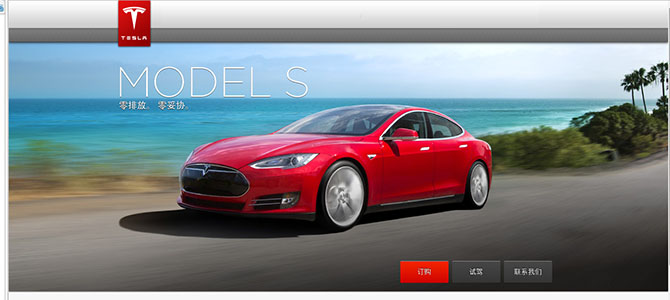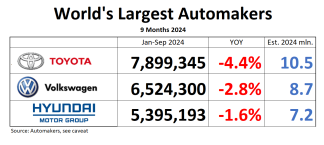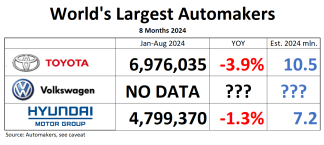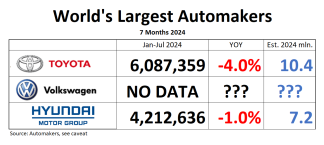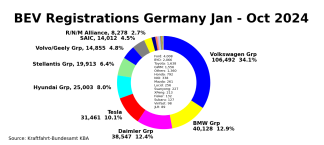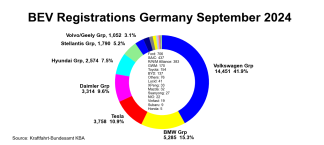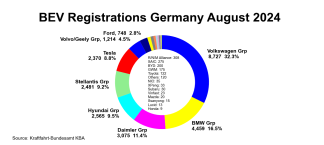One of the hottest topic on Wall Street is whether Tesla will sell the targeted 5,000 units in China. If you want to know what cars are really hot in the world’s hottest market, there is no better place than the grey import dealers around China’s port city of Tianjin, China’s hotbed of cars that officially should not even be there. This is where the first Ford Explorers came in, and the bad boy Raptors. And while Chinese customers complain about not receiving the Tesla Model S they ordered many months ago, the car can be had for cash at a grey import dealer in said Tianjin. According to Tycho de Feijter of Carnewschina, “the dealer claims he has fourteen cars available.” Tesla has only one official dealer, in Beijing, with no cars, but a very long waiting list, and first deliveries some time in June. “That is all too slow for wealthy Chinese car buyers who want a Tesla now,” reports Tycho. In Tianjin, cash shortens the wait. Fresh off the boat from California, and still with the U.S. tag on the car, a Model S goes for a premium of $13,000 above Chinese list. And go they do.
Tesla, as not seen in China (via Youtube)
In a country where everybody wants a deal and nothing goes without intense haggling, a price premium is the true metric for a car’s popularity. By that metric alone, Tesla should have no problem selling its 5,000 cars in China, a drop on a very hot market. Elon Musk enjoys rock star status in China, especially among the very much wired younger generation, which buys cars with uncontrolled abandon. In the first world, the buying of new cars is the domain of the more mature, and the young allegedly have lost their appetite for cars. In the West, the old have money, the young have college loans. In China, a young man in his early 30’s “is the new face of the luxury auto buyer in China,” says CNBC. For the new faces, Musk, the man who launched PayPal and rockets, is mega cool.
That fame is not without its detractors. Before the first Teslas had even appeared on China’s shores, China’s state-run CCTV fanned the flames about Teslas on fire. The Chinese copy everything, including Western media tropes. China’s state TV found itself in rare agreement with Japan’s Nikkei, which in a recent article found “several good reasons to be cautious about Tesla’s China fortunes.”
The Nikkei’s madcap forecast is put forth by three analysts of China-focused JL Warren, and the article succeeds in putting the sanity, or at least the sobriety of the Nikkei’s editors in serious doubt. The Nikkei’s condemnation of Tesla’s China-chances hinge on two quite unorthodox data points.
“For one, the company is still not seeing much traffic to its website,” says the story. Calling up data from Alexa, the whacky Warren analysts find that “only around 4% of total visitors to the Tesla website, including its Chinese language site, have been coming from China in recent days.” Big data experts they are, the Warren commission should know that Alexa is the most unreliable of the increasingly wobbly website meters. They should be aware that the Chinese firewall destroyed the metrics of all website traffic exiting China. At the very least, they should know that both Tesla.cn and Teslamotors.cn appear to have become the victim of a cybersquatter by the name of Xiamen Easy Name Technology Co., Ltd. , which probably enjoys a good deal of that wayward traffic.
If, after these caveats, Alexa readings are still worthy of mention, then the Warren warriors better worry about China’s leading automakers, GM and Volkswagen. According to Alexa, only around 2.5% of total visitors to the GM website have been coming from China. At Volkswagen, which dethroned GM last year as the leader of Chinese car sales, traffic from China is so low, it does not even register.
As if that is not enough, the Nikkei goes into a long analysis of why Tesla will fail to capture a core market, namely that of taxis. Yes, you did read right, taxis. After 5 contorted paragraphs and serious number crunching, the Nikkei comes to the conclusion that a Model S is too expensive for a business where the meter starts running at around $2, where a trip from Beijing’s airport into the city rarely costs more than $15, and where the taxi of choice is a Beijing-made Hyundai Elantra in Beijing, or a Shanghai-made Volkswagen Santana in Shanghai.
“An iPhone is an affordable luxury for the average Chinese consumer with a monthly income of around $500,” concludes the Nikkei, “a Tesla is within reach only for a wealthy minority.” That may be true, but that minority is big enough to power sales of more than 2,000 Porsches per month, the minority turns China into Audi’s second-largest market to the tune of 450,000 units per year. Without that wealthy minority, sales of premium brands around the world would be in serious trouble.
If China can absorb a third of the 3,600 Rolls-Royces sold worldwide, if the market is good for more than 2,000 Bentleys a year, then selling 5,000 Teslas is quite doable. Half of them should sell in Shanghai alone, where buyers of an electric Model S qualify for a free license plate, a luxury for which owners of gasoline driven cars must pay up to $15,000.
The only enemy of faster sales is Tesla’s distribution model. Buy a Model S in Beijing, and the order is sent to America, where the car is built to order and shipped to China, something that “takes the company about three to four months,” as the Nikkei says. That again is all too slow for wealthy Chinese car buyers who want instant gratification, and a Tesla NOW.
